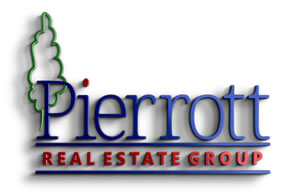After watching every virtual home tour and agonizing over the ideal location, you have narrowed down the choices to either a condo or co-op. These two property types might look similar, yet they’re often completely different — like comparing apples and oranges. But instead of having to list out the pros and cons yourself, we did the work for you!
We talked to top experts like Matt Laricy, an award-winning Chicago-area real estate agent, who specializes in selling both condos and co-ops. We also conducted extensive research to sort out the differences between these two options and help you choose the right place for your next welcome mat.

Defining condos and co-ops
What is a condominium?
Most condominiums (or condos) consist of a single unit within a multi-unit property or complex. Owners purchase their unit and also have an interest in any shared amenities, which might include a pool, gym, and gardens. A condo owners association (COA) manages all of these facilities and services. Additionally, everyone who resides in the condo community agrees to follow the same covenants, conditions & restrictions (CC&Rs).
What is a cooperative?
While a cooperative (or co-op) unit could look identical to a condo unit, there are some key differences.
Co-ops are run by a corporation that owns the building and often manages the property through a board of directors, which is also made up of residents. With a co-op, residents own a share of the corporation rather than the unit itself. Like a condo, residents also agree to follow established rules that the board enforces.
Ownership
What do you own in a condo?
Everything inside your condo is yours to maintain and is considered real property. Your ownership consists of the unit you purchase and is similar to a single-family house in generating home equity.
Laricy says that condo values can go up and down, but that they tend to be easier to resell than co-ops because of the application process (more on that in a minute).
What do you own in a co-op?
Since residents are shareholders, their shares represent a portion of the entire building, and their ownership is considered personal property. Since there is no ownership of your individual unit, you’ll likely have a proprietary lease agreement.
The number of shares assigned to each unit is determined by the unit’s total size and includes spaces such as balconies and assigned parking. The type of shares and related equity depends on the co-op structure and can be either market-rate, limited-equity, or zero-equity shares.

Application process
What is the application process for a condo?
Buying a condo is similar to purchasing a single-family home in obtaining preapproval and applying for a mortgage.
Once you submit an offer, you’ll have the opportunity to review the condo association’s financial statements and the CC&Rs that govern the condo community. These rules (sometimes referred to as declarations or “condo decs”) usually cover things like parking, and noise and pet restrictions. Prior to moving into your condo, you must agree to follow all the CC&Rs, and you’ll need to pay your condo association fee (including any special assessments) on time.
Ryan Reiffert, a real estate attorney in San Antonio, says to “read every single rule” and think about how that could negatively impact or be used against you.
Reiffert gives an example of how a CC&R may state that only two guests are allowed to visit at a time. While this may be a way for your complex to reduce excessive noise, if you wanted to have a dinner party, that rule could pose a problem.
Once you review the condo association agreements, and you successfully complete all the paperwork, you’ll soon be closing on your condo, moving in, and hanging up your family photos. The overall process is generally much faster than applying for a co-op and typically entails much less scrutiny.
What is the application process for a co-op?
The application process for a co-op varies, but it is usually more stringent than applying for a condo.
Once the seller accepts your offer, then it’s the board’s turn to say yea or nay. The process usually starts with a background check, along with detailed information about your income, credit, and debt. All of this information is submitted to the co-op board.
After the board reviews your information and supporting documentation, the next step is to meet with them for an interview. However, even if you pass the initial screening, it can sometimes take months to meet due to the board’s schedule. Alternatively, after reviewing all of your paperwork, the board could also decide to remove you from the process, says Laricy.
What the board can’t do is violate the Fair Housing Act — discriminate for reasons based on race, religion, color, national origin, sex, familial status, or disability. However, the board is usually able to reject you for any other reason, and they typically aren’t even required to tell you the reason.
Rejections may be based on financial stability, employment history, or your desire to use the co-op as a pied-a-terre. The board might even weigh whether your hobbies are disruptive or problematic. So if it becomes known that you enjoy late-night clog-dancing parties, that could be a deciding factor.
According to Laricy, many people are surprised to learn how much personal information is required to purchase a co-op. While this process can take several months, the board ultimately wants a complete picture of your finances and lifestyle in order to protect everyone’s shared investment.
Fees
What fees do you pay for a condo?
In addition to your mortgage, you are typically charged a monthly fee to enjoy a low-maintenance lifestyle. Depending on the condo community, this may cover maintenance of the common areas, trash removal, and sewer costs. This fee can range widely, but it typically costs hundreds of dollars per month depending on what services are included.
Because of the established CC&Rs, this means you won’t be able to paint your front door a candy-apple red if sandalwood is the only approved color for your complex. But if you do break out the paint brush (and break the rules), expect to face a fine.
Also, it’s possible for all the residents to be charged for special assessments to cover large maintenance projects, such as repaving or roofing. Overall, residents cannot ignore condo fees and fines from the association. Doing so could result in a lien on your property, and foreclosure could be possible in extreme cases.
What fees do you pay in a co-op?
Co-ops often charge higher monthly fees because they usually include all your utilities and property taxes. Co-ops also tend to have higher reserve funds to cover emergencies.
Laricy explains, “You have two people that are looking at a condo and a co-op, and they’re both at $500,000 as an ask price. And the co-op might have $6,000 per month assessment, and the condo might have $2,000 per month assessment — and people are like, ‘Wow, that’s crazy, it’s $6,000!’ But if you actually added up the taxes on the $500,000, it’s really not that big of a difference — plus electricity is included and electricity is never included in condos.”
Co-ops are community-focused and also have CC&Rs that the board enforces. This means you may not be able to paint all your walls neon orange without board approval. Co-ops may also charge you a fine for straying from the CC&Rs. If you don’t pay your monthly fees, the board can take legal action, and invoke a possible eviction for going into arrears.
Market value
How is the market value estimated for a condo?
Similar to a single-family home, estimating a condo’s market value is based on the comparable units in the same complex or surrounding communities. Many times the building’s amenities — such as a swimming pool or gym — also can attract buyers to a particular building, adding value. An appraisal or a comparative market analysis is the best way to estimate how much your particular condo unit is worth.
How is the market value estimated for a co-op?
The market value of a co-op is estimated by the co-op structure. The three types are:
Market rate: The seller can sell shares at any price in the market and can build equity without limitations.
Limited equity: Shares have limits on how much equity can be accrued over time to help keep housing affordable.
Zero equity: No equity is accrued; instead, buyers are able to secure housing below market value.
For each type of co-op structure, before selling your shares, the board may need to approve the buyer and has the ability to stop a sale.

Property taxes
What are the property taxes for a condo?
Similar to a single-family home, condo-owners pay property taxes. Your property taxes are typically included in your monthly mortgage payments and are not managed through the COA.
“If condo No. 5 doesn’t pay its taxes, well, it doesn’t put the whole rest of the building at risk,” says Reiffert.
What are the property taxes for a co-op?
The corporation pays the taxes for the entire building, and each shareholder pays a percentage of the tax bill, typically through their monthly fee.
Since the corporation is managing the building, they rely on all the residents to pay their taxes. In cases where they don’t, the corporation would still pay the difference with their reserve fund and then get reimbursed (along with the resident’s payment for a fine) so taxes aren’t paid late.
Tax deductions
Are there tax deductions for a condo?
For your primary residence, the IRS has this handy document, Publication 530 (2020), Tax Information for Homeowners, which discusses exactly what you can deduct.
Depending on your other outstanding loans, typically you can deduct the mortgage interest and property taxes, which are similar to how you would itemize your deductions for a single-family home. It’s generally best to consult with a tax professional to determine the appropriate deductions for your particular situation.
Are there tax deductions for a co-op?
According to Laricy, there’s a misconception about the ability to take tax deductions for co-ops.
Because the building gets taxed as a whole, the tax cost is included as part of your monthly association fee. The percentage of the entire tax (based on your shares) is what can be deducted. Also, if you have financing for your shares, that interest can usually be deducted as well. But, as mentioned above, it’s always best to consult with a tax professional when determining the deductions available to you.
Financing
How do you finance a condo?
Financing a condo is similar to obtaining a loan for a single-family home. However, not all condo developments will qualify for government-backed loan programs.
To find out if yours does, you can either ask the COA or enter your information into the U.S. Department of Housing and Development’s HUD database. If it doesn’t, conventional financing is another alternative.
How do you finance a co-op?
Some co-ops don’t allow financing, but most do. However, instead of a traditional mortgage, you’ll need to get a cooperative mortgage, also known as a share loan. With this loan, you buy shares of the corporation instead of buying the property itself. The lender will look at all aspects of the building to determine the total financial stability of the investment before granting the loan.
Laricy thinks that “lots of co-ops have been loosening the restrictions. Honestly, 50 years ago, most co-ops never even allowed financing at all, from what I understand.”
However, before you work with any lender, they will have to be approved by the board, which will only allow certain lenders for any sale in the building. Laricy says it can be more expensive to buy into a co-op due to the typical 1%-to-3 % transfer fee, which is based on the purchase price.
Choosing between a condo or co-op will depend on your finances, lifestyle, and patience in finding that perfect spot to listen to your tunes and kick back.
Need a little help to put your plan into action? Be sure to talk to your qualified buyer’s agent today!
Header Image Source: (Daniel Brubaker / Unsplash)

